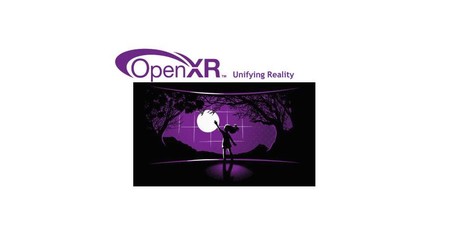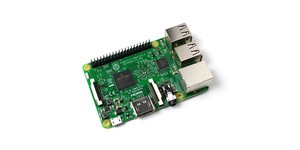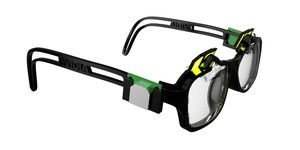
The Kronos Group, best known as the driving force behind the OpenGL and Vulkan graphics application programming interface (API) standards, has announced the release of its virtual and augmented reality (VR and AR) standard: OpenXR 1.0.
Announced at the SIGGRAPH graphics conference this week and supported by presentations from Epic Games, Microsoft, Facebook's Oculus VR, Collabora, and Varjo, OpenXR 1.0 is the Khronos Group's royalty-free open standard for virtual and augmented reality (VR and AR - known together as XR, or mixed reality.
'The working group is excited to launch the 1.0 version of the OpenXR specification, and the feedback from the community on the provisional specification released in March has been invaluable to getting us to this significant milestone,' claims Brent Insko, OpenXR working group chair and lead XR architect at Intel. "Our work continues as we now finalise a comprehensive test suite, integrate key game engine support, and plan the next set of features to evolve a truly vibrant, cross-platform standard for XR platforms and devices. Now is the time for software developers to start putting OpenXR to work.'
Designed for cross-platform, device-agnostic use, OpenXR 1.0 marks a milestone in the standard: Future versions of OpenXR may add new features, but will always be backwards compatible with what has been set in the version one-point-zero release. It also boasts early support from a range of companies, with Microsoft, Collabora, and Facebook's Oculus VR all announcing OpenXR support - the latter bringing it to the Rift ecosystem now and the Quest ecosystem in the near future - and Epic Games pledging to add it to a future release of the Unreal Engine.
'Facebook and Oculus continue to believe in the value the OpenXR standard delivers to users and developers,' says Oculus VR co-founder and Facebook's head of VR Nate Mitchell. 'We plan to provide runtime support for apps built on OpenXR 1.0 on the Rift and Quest platforms.'
'The mobile era of computing was defined and ultimately constrained by closed ecosystems. With mixed reality, the next wave of computing must be and will be open,' adds Don Box, technical fellow at Microsoft. 'Today, Microsoft is proud to release the first OpenXR 1.0 runtime that supports mixed reality, for all Windows Mixed Reality and HoloLens 2 users. We are excited to now work with the OpenXR community to design the key extensions that will bring mixed reality to life, with full support by end of year for HoloLens 2 hand tracking, eye tracking, spatial mapping and spatial anchors.'
'We're thrilled to support the OpenXR 1.0 release, along with all of the Khronos Group members who have worked tirelessly to create the standard,' Epic Games' Jules Blok concludes. 'Unreal Engine led the way with support for the OpenXR 0.9 provisional specification, and we're excited to move the 1.0 revision forward in collaboration with our hardware partners releasing at the same time. Epic believes that open standards are essential to driving technology and bridging the gaps between digital ecosystems.'
The OpenXR 1.0 specification is freely available via the Khronos Group's website.

MSI MPG Velox 100R Chassis Review
October 14 2021 | 15:04








Want to comment? Please log in.